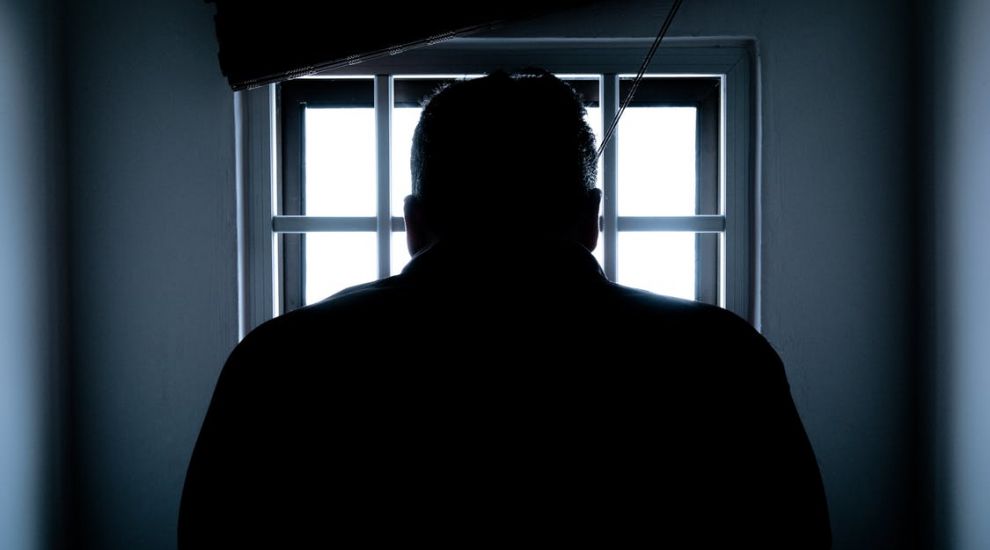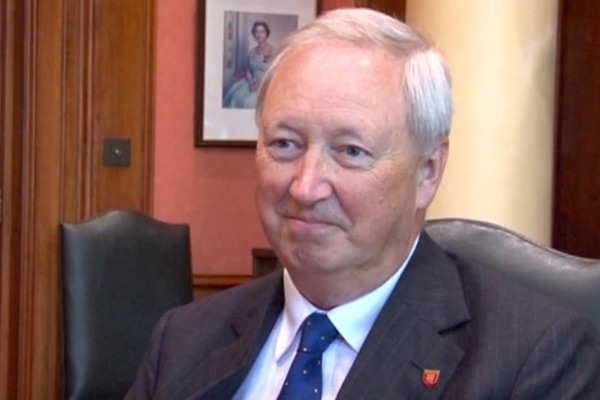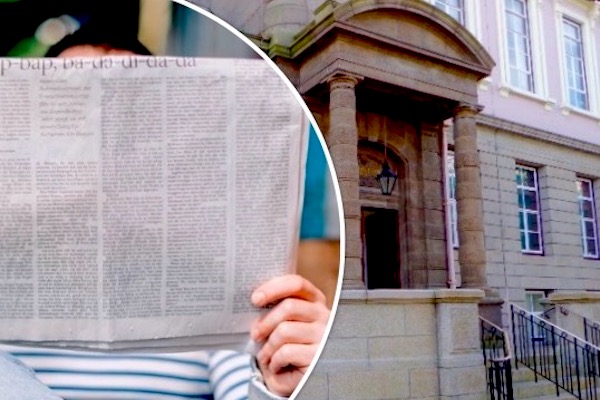

News reports should not name defendants on trial for criminal offences - spanning everything from rape to murder and fraud - unless they are proven guilty, the island’s chief judge has argued.
The Bailiff’s comments came during a grilling by a panel tasked with reviewing a proposed overhaul of the Criminal Procedures Law, which was written in the 1800s.
While acknowledging that it would be “outside the scope” of their review, Bailiff Sir William Bailhache told Deputies Sam Mezec (Chairman), Tracey Vallois (Vice Chairman) and Richard Renouf that they “ought to” raise the issue of keeping defendants anonymous.
Present court cases are conducted in accordance with the principles of ‘open justice’, meaning that the public have a right to know how alleged criminals are treated.
But the Bailiff said that he had been questioning whether the media should be banned from publishing the names of defendants before the verdict since his decade as Attorney General.

Pictured: The comments came from the Bailiff, Sir William Bailhache.
“…Where a defendant is named and subsequently acquitted, he – it’s usually a he – carries a stigma thereafter,” he warned.
“I’m not sure that the public has a right to know those things. It’s a balance,” he added.
He said that it was an issue that he felt “needed to be looked at” and that he raised it while he held the position of Attorney General, but that the Police at the time held a “strong view” that this should not be the case.
Their position, he explained, was that publishing the name of a defendant – while keeping their alleged victim(s) anonymous – may encourage others to come forward. He said that this was a “helpful thing” at the time of the child abuse inquiry.
Nonetheless, he acknowledged that this could cause difficulty in the event of retrials – if new legislation permits them to go ahead in the case of a hung jury.

Pictured: The Bailiff said that people who had been acquitted of an offence might still face "stigma" if their names are shared in the media.
Juries are expected to only make their decisions on the basis of facts heard in court, not what is heard externally in news reports or on social media. But allowing second trials to go ahead could threaten this, the Bailiff explained.
He said that this was because “jurors are like children” and will be tempted to look at previous media coverage if told not to do so. “I’m not sure it’s a good to have trial judge metaphorically wagging his finger and saying, ‘don’t do it.’"
His views on anonymising defendants are shared by local Advocate Olaf Blakeley, who has previously called for reporting rules to be changed. In a Connect Magazine column, he wrote: “We know as a civilised society we should not, as individuals, be exposed to humiliation, public criticism or community gossip. It’s not fair and it’s not kind. However, we also realise that for the greater good and for public order sometimes our rights come secondary. Thus, if an individual is suspected of an offence they may have to relinquish some rights because too strict an observance would thwart proper prosecutions.
“However, there comes a point at which we need to stop and think about criminal trials and how defendants’ identities are disclosed before they are convicted. While the adage ‘innocent until proven guilty’ has many applications it seems to take a back seat in the setting I am describing. Why? Why is something we hold so dear discarded all so easily and a suspected criminal subjected to public humiliation and shame?”
Yesterday’s Scrutiny Hearing also saw consideration given to whether lawyers should be allowed to sit on a jury.
“There is a strong point to be made that you want to be sure that your jury has got sensible ordinary people on it, and that includes lawyers who are ordinary sensible people as well,” the Bailiff said.
However, he said that he was “cautious” and “nervous” about the idea of their specialist knowledge unduly influencing their fellow. He explained that verdicts had to be reached through “collective discussion” and that a legal ‘expert’ might risk that, with their opinions potentially being given more weight than those of others.
“There are some skills in a sense that you don’t want to import in… In a small place, people tend to know each other and so there is a higher probability that particular members of the jury known to have particular positions will be more influential than perhaps they should.”
On the subject of whether centeniers should be able to form part of the jury, the Bailiff commented that it was “not a problem” in his view, but that it could be for some members of the public.
“It is important that the public have the perception that the trial is completely fair and I’m not sure about that.”
Comments
Comments on this story express the views of the commentator only, not Bailiwick Publishing. We are unable to guarantee the accuracy of any of those comments.